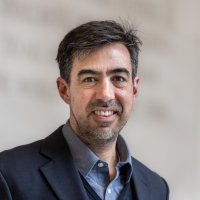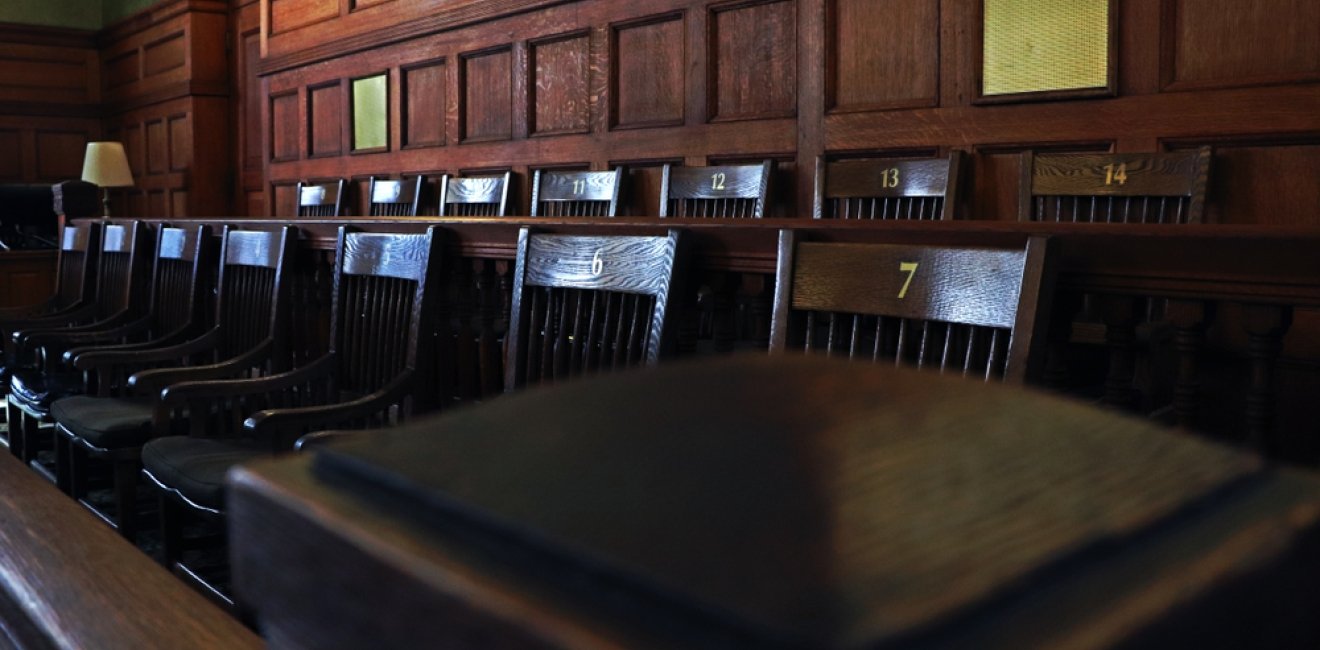
A blog of the Latin America Program
Civil society organizations are crucial to the peaceful resolution of conflicts in Latin America, especially in highly unequal societies, where they help low-income individuals access the legal system.
Access to justice varies significantly, across countries and over time. Figure 1 compares the value of the Index of Access to Justice – produced by the Varieties of Democracy Project – in 2000 and 2022 for countries in the region. The index, ranging from 0 to 1, measures whether individuals can pursue justice without risk to their personal safety; if trials are fair; if citizens can address misconduct by public authorities; and if the rights to legal counsel and appeal are guaranteed. Countries on or close to the line remained at the same level between the two years. Countries above the line experienced positive changes. Countries below the line saw access to justice decline.
Figure 1

The positive change in Colombia is noteworthy, and it is related to the building of strong civil society organizations that provide support for litigating social, political, and economic rights. Without this support, in Colombia and elsewhere, rights enshrined in a constitution are merely words on paper, and conflicts are sometimes resolved through violence. That is because access to justice requires the capacity to recognize that a right has been violated and obtain legal help to bring a dispute to court and navigate an oftentimes lengthy and complex trial.
Access to justice requires the capacity to recognize that a right has been violated and obtain legal help to bring a dispute to court and navigate an oftentimes lengthy and complex trial.”
Consider the role of civil society organizations during the decades of political violence in Colombia. In the “false positives scandal,” when members of the security services murdered noncombatants and disguised their bodies as guerilla fighters, organizations such as the Madres de los Falsos Positivos (Mothers of the False Positives, or MAFAPO) have fought to hold accountable high-ranking military officers and civilian officials involved in the extrajudicial killings. MAFAPO has used protests, independent research, and litigation in its pursuit of justice. These efforts have raised public awareness, and helped build ties in local communities to public institutions, including the Special Jurisdiction for Peace (Jurisdicción Especial para la Paz, JEP), established in 2015 as part of the historic peace agreement with the Revolutionary Armed Forces of Colombia (FARC) guerrillas. Challenges remain, but engaging with public institutions, a MAFAPO member explained, offers “a window that is opening further every day.”
In Mexico, which has also suffered high levels of violence, victims of violent crime have a harder time finding support to litigate their causes. The experience of relatives of forcibly disappeared persons is a case in point, as Janice’s Gallagher recently published book Bootstrap Justice: The Search for Mexico’s Disappeared vividly narrates. The number of disappeared persons in Mexico recently surpassed 100,000, but there are few civil society organizations that help their relatives locate the remains of loved ones and demand accountability. Worse, because these disappearances often occur in regions where organized criminal organizations have influence over state institutions, the relatives of victims face particular challenges soliciting support from the police, prosecutors, public defenders, or judges.
Civil society organizations have also helped establish new rights, such as the right to abortion in Colombia. Groups such as Mesa por la Vida y la Salud de las Mujeres pressed for legal decisions on abortion and in 2006, the Colombian Constitutional Court decriminalized abortion. Since then, Colombian civil society organizations have monitored enforcement of the ruling, worked with the Ministry of Health and local communities to inform women of their new right, and sued in cases where abortion rights are still denied.
The role of civil society groups in promoting access to justice is increasingly important in Latin America, where the level of social and political conflict has been rising.”
The role of civil society groups in promoting access to justice is increasingly important in Latin America, where the level of social and political conflict has been rising. In this context, non-governmental organizations are assuring that victims can peacefully resolve disputes and defend their social, political, and economic rights. Not all conflicts should go to courts. But access to courts is often the only path to justice, and as the case of Colombia shows, the path to court is often only available with the help of a well-organized civil society.
Gabriela Pérez collaborated with the investigation for this article.
Author

Professor, ITAM (Mexico City)

Latin America Program
The Wilson Center’s prestigious Latin America Program provides non-partisan expertise to a broad community of decision makers in the United States and Latin America on critical policy issues facing the Hemisphere. The Program provides insightful and actionable research for policymakers, private sector leaders, journalists, and public intellectuals in the United States and Latin America. To bridge the gap between scholarship and policy action, it fosters new inquiry, sponsors high-level public and private meetings among multiple stakeholders, and explores policy options to improve outcomes for citizens throughout the Americas. Drawing on the Wilson Center’s strength as the nation’s key non-partisan policy forum, the Program serves as a trusted source of analysis and a vital point of contact between the worlds of scholarship and action. Read more


Mexico Institute
The Mexico Institute seeks to improve understanding, communication, and cooperation between Mexico and the United States by promoting original research, encouraging public discussion, and proposing policy options for enhancing the bilateral relationship. A binational Advisory Board, chaired by Luis Téllez and Earl Anthony Wayne, oversees the work of the Mexico Institute. Read more

Explore More in Weekly Asado
Browse Weekly Asado
Dengue Haunts South America’s Summers

Lessons from Costa Rica’s Economic Transformation

Women and Latin America’s Digital Revolution

